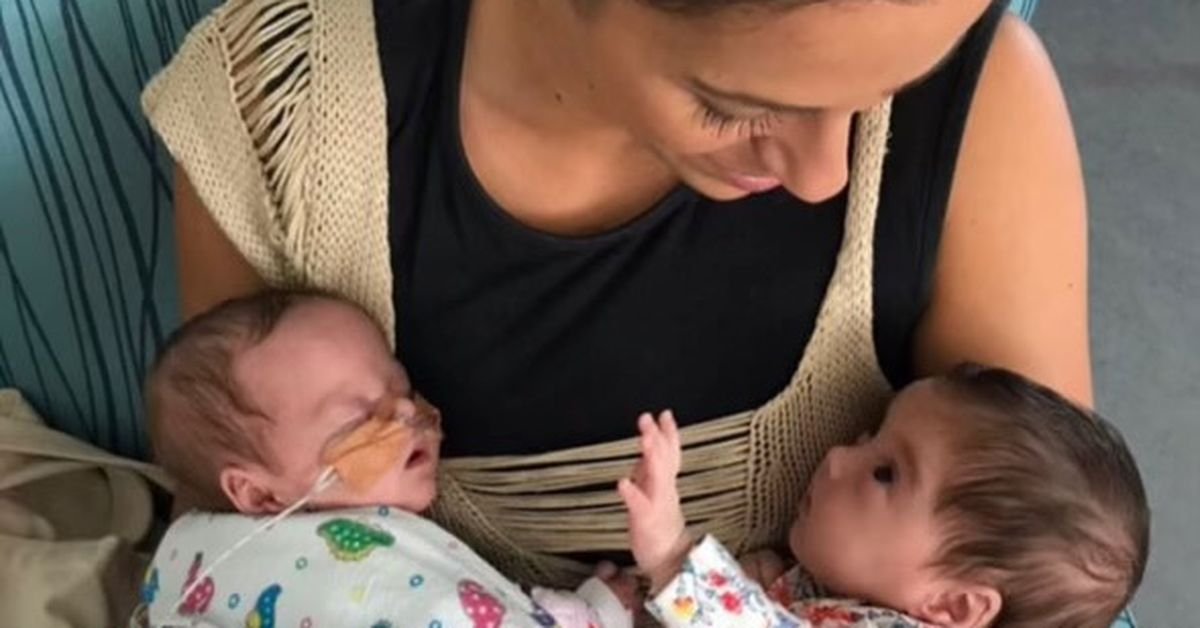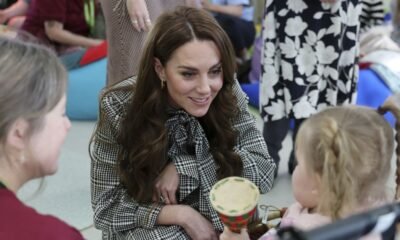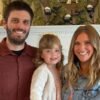Celebrity
Premature Twins: Mum Diana Nicholls to run on treadmill for 24 hours to help premature babies like hers
Diana Nicholls was expecting twins when her pregnancy suddenly took a turn.
After suffering infertility and undergoing treatment for endometriosis, the Melbourne resident was thrilled to learn she had fallen pregnant with twins
But her joy was short-lived after a scan at 16 weeks showing the unborn babies shared a single placenta, which could potentially cause a deadly condition.
Weeks later, Nicholls was told they were suffering from the rare twin-to-twin transfusion syndrome.
READ MORE: Sarah Ferguson opens up about recent mental health treatment

“There was only a 10 per cent [chance] that they would survive with medical intervention,” Nicholls told 9honey of the condition that affects about 200 Australian babies each year.
According to Mercy Perinatal, the syndrome occurs when blood flow between the twins is unbalanced. This leads one twin becoming a blood ‘donor’ to the ‘recipient’ twin.
As a result, the ‘donor’ becomes anaemic, stops making urine, is much smaller and has very little amniotic fluid in its sac, while the ‘recipient’ suffers from overloaded blood circulation, which can cause heart strain and over-production of urine that can lead to preterm labour.
Nicholls’ pregnancy was deemed high-risk and she was immediately placed in the care of Mercy Perinatal at Melbourne’s Mercy Hospital for Women.
At 20 weeks, Nicholls underwent a delicate procedure via keyhole surgery to laser adjoining arteries to generate independent blood supplies to each baby.
READ MORE: Eric Dane won’t stop working despite devastating diagnosis

Nicholls was told she could lose one or both babies during the procedure or in the days that followed.
The surgery was a success, but she returned to Mercy Perinatal every few days for scans and so one twin could undergo two blood transfusions in-utero.
Of special concern was the size of one of the twins, whose growth was restricted.
It was an agonising wait for Nicholls and her then-husband Cameron to see if the smaller of the twins would make it to 450 grams to be deemed ‘viable’ by doctors.
Not surprisingly, the uncertainly took a toll on the expectant mum’s mental health.
When Nicholls was 30 weeks and one day, tests showed the smaller of the twins’ heartrate was irregular and an emergency caesarean took place within hours.

Adrian arrived first, weighing just one kilogram and was whisked away to Mercy Hospital for Women’s neonatal intensive care unit (NICU).
“Adrian cried but Evie didn’t,” Nicholls recalled.
“At the time I don’t think I realised what that meant, [but] Evie wasn’t breathing and had to be resuscitated.”
Hours after their birth, Nicholls was wheeled in to NICU to see her two tiny daughters.
“I laid in the bed and just looked at both of them,” she said.
“I was able to touch Evie’s tiny hand, which was pretty special.”
For a daily dose of 9honey, subscribe to our newsletter here.

While Adrian fed, slept and gradually put on weight without too many problems, Evie, the smaller of the two and weighing just 788 grams at birth, had to fight to survive.
“For Evie, it was two steps forward and three steps back,” Nicholls said.
“When Evie was in her fourth week in NICU, she picked up an infection. It was touch and go and I thought I was going to lose her.”
Adrian spent 53 days in hospital before being allowed to go home days before Christmas.
Evie remained in hospital for 83 days before going home. Even then, she remained on oxygen for five months and had to return to hospital for surgery to repair two hernias.
Nicholls was warned prematurity was linked to a host of conditions, and did not breathe a sigh of relief until the girls’ final paediatric appointment around their third birthday, when they finally got a clean bill of health.

They are now healthy seven-year-olds who are in Year 2 at school and share a special bond.
Nicholls knows this was in part due to the care she received at Mercy Perinatal.
When the girls were still in NICU, Nicholls took part in a walk to raise awareness and funds for Mercy Perinatal.
Then a year after their birth the keen ‘recreational’ ultra-marathon runner organised her own fundraising run.
Since then, the personal trainer and running coach has held an event every year, including a 44-hour challenge. In 2023, she ran the equivalent of seven marathons in seven days.
Along the way, she has raised more than $40,000 for Mercy Perinatal.

Nicholls, who suffered trauma from her high-risk pregnancy and what she witnessed in NICU, still sees a psychiatrist and says running has helped her cope.
Now, she is facing her biggest challenge yet, embarking on a 24-hour treadmill challenge in partnership with Mercy Health Foundation that will see her run or walk for 24 hours.
Eight treadmills will be set up inside the hospital where Nicholls’ daughters battled for life. A friend will join her for the entire 24 hours, while others will run alongside her in increments ranging from 30 minutes to six hours.
Nicholls will begin her marathon at noon on Friday, June 20, only stepping off the treadmill for toilet breaks or to change her clothes, and plans to eat on the run.
Her preparations have included regular outdoor runs and a six-hour training session on a treadmill.
She hopes to raise $30,000 for Mercy Perinatal.

The foundation’s chief executive Rebecca MacFarling said Nicholls’ fundraising efforts helped Mercy Perinatal deliver lifesaving care to mothers and babies across Victoria.
“No parent should experience the heartbreak of losing a baby, yet in Australia one in 130 pregnancies ends in stillbirth, and 8 per cent of babies are born too soon,” MacFarling said.
“For many families, access to this level of care is the difference between life and loss.
“By participating in this event, or donating funds to Mercy Perinatal, the community can play an important role in enhancing the team’s care and research practices, ultimately ensuring more mothers can go home safely with their babies.”
You can sponsor Nicolls’ run here.
The Red Nose Grief and Loss Support Line is available 24/7 for anyone affected by the loss of a pregnancy, stillbirth or death of a baby or child on 1300 308 307.
FOLLOW US ON WHATSAPP HERE: Stay across all the latest in celebrity, lifestyle and opinion via our WhatsApp channel. No comments, no algorithm and nobody can see your private details.
















